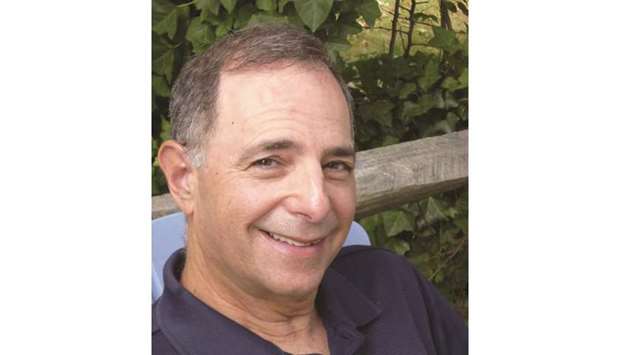Mitchell Zuckoff and I spent September 11, 2001, in a similar pursuit: writing the main story of an unprecedented terrorist attack for our respective newspapers, based on the reporting of dozens of colleagues. His account appeared in the next day’s Boston Globe, and mine in Newsday.
I don’t know what the experience was like for him, but for me, it was a frustrating day filled with unanswered questions; the most basic information was unavailable.
Eventually, a vast body of evidence took shape: the 9/11 Commission records, including more than 1,200 interviews; aviation, engineering, communications and military inquiries; massive news coverage; dozens of books; 911 dispatcher tapes; court transcripts; oral history.
Zuckoff, a Boston University journalism professor and author of seven previous nonfiction books, has masterfully transformed this enormous record and his own interviews into a powerful narrative of that day when America’s worst act of terrorism sped from out of the blue of a sunny, azure sky.
It happened to be the last week of my 23 years in daily journalism; I was starting a second career teaching the craft. Every semester thereafter, I gave my students at Brooklyn College a lesson based on covering 9/11; I saw how it gradually turned from news to historic event.
Zuckoff takes it in the other direction; he aims to “delay the descent of 9/11 into the well of history.” His book has little historic perspective or analysis, but it succeeds in making the events of that day as vivid as if they occurred yesterday. He has completed the first draft of history he set out to write 18 years ago; his careful citation and wide-ranging research will make this book a useful guide for future historians.
With its disaster-movie structure, page-turning pace and steadfast focus on telling the story through dozens of individual human dramas, Fall and Rise is a thorough, accurate, well-documented and very readable account of what is known about that fateful day, thankfully stripped of conspiracy theories or political spin. I would strongly recommend it for those who were not yet adults in 2001; 9/11 was a pivotal event that will continue to shape the American experience. And those who think they remember — I count myself — may be surprised at how much they never knew, or perhaps repressed from memory.
As a New Yorker, I was mostly aware of events involving the destruction of the World Trade Center. But I had not focused on other aspects. One example: the terrible foul-ups in military air support in response to the hijackings of four commercial flights.
Zuckoff tells that story especially well, combining information in official reports with the stories of people directly involved, such as Major Kevin Nasypany of the Air National Guard, who was then air defence control commander for the Northeast. One small detail he reports is that the agency had coincidentally planned a drill for September 11 based on a simulated attack from Russian bombers, plus a mock hijacking by militants who wanted to land on Caribbean island.
“Nasypany and some colleagues wanted the exercise to include a plot by terrorists to fly a cargo plane into the United Nations building in New York City, but a military intelligence officer had nixed that idea as too far-fetched to be useful,” Zuckoff writes.
Then at 9:32am — after planes had already struck the two 110-story towers — air traffic controllers at Dulles Airport outside Washington, D.C., saw a green dot materialise unexpectedly on their radar screens, racing east. “Oh my God,” one of the controllers shouted. “We’ve got a target headed right for the White House!”
A manager at Dulles alerted the Federal Aviation Administration’s control centre and controllers at Reagan airport in Washington, Zuckoff writes. Still, he adds, no-one notified anyone in the military air defence system. F-16s had meanwhile flown — in the wrong direction.
In one sense, it was the story of the day: one missed chance after another to avert catastrophe.
But there was also a story of heroism, which Zuckoff tells with emotion and chilling, precise detail. He shows that even in our self-referential, individualist era, everyday people — many of them — summoned the courage to be self-giving, and even to give all. And that is worth remembering. — Newsday/TNS
(Paul Moses was a reporter and editor at Newsday for 17 years. His most recent book is An Unlikely Union: The Love-Hate Story of New York’s Irish and Italians).

As a New Yorker, I was mostly aware of events involving the destruction of the World Trade Center. But I had not focused on other aspects. One example: the terrible foul-ups in military air support in response to the hijackings of four commercial flights u2014 Paul Moses, author, ex-journalist
